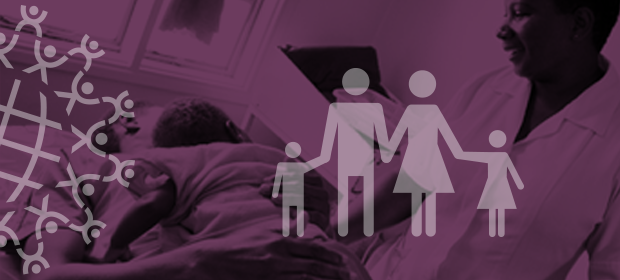Where We Work
See our interactive map


Training health workers in Togo is creating higher-quality, youth-friendlier services, resulting in increased usage of modern contraception among young clients. A new article by IntraHealth International’s Stembile Mugore in Global Health Science & Practice explains how training health workers to provide adolescent-friendly postabortion care is increasing voluntary contraception use, reducing unintended pregnancies, and averting abortions and maternal deaths in the country.
This training marks a change for medical services in Togo.
Sixty-one percent of the Togolese population is under 25. For women in that category, the unmet need for contraception is extremely high (42% for ages 15–19 and 40% for ages 20–24), which leads to a higher risk of unwanted pregnancies, illnesses related to pregnancy or childbirth, unsafe abortions, and/or mortality.
Postabortion care includes emergency treatment for abortion complications; access to voluntary family planning services; referrals for other reproductive health services; and community empowerment through community awareness and mobilization. But young women in Togo don’t often seek out such services after an abortion for various reasons, including bias and judgmental attitudes from health workers, parental consent policies, stigma, and social pressure to have children.
Through our work on the Pathfinder International-led Evidence to Action (E2A) project, and in tandem with Togo’s Division for Maternal and Infant Health and Family Planning, health workers were trained at five health facilities from 2014 to 2016 using IntraHealth’s Optimizing Performance and Quality (OPQ) approach.
This approach first identified gaps in care and helped establish solutions to improve youth access to contraception choices. The training module then guided health workers to focus on:
After the 14 health workers completed the adolescent focused OPQ training, they treated 351 patients between the ages of 14 and 24 over six months. Of those, 41% chose a modern contraceptive method. Before the training, no young women who had come for postabortion care chose a modern contraceptive after receiving counseling about family planning.
“This training marks a change for medical services in Togo,” says Stembile Mugore. “Now, postabortion care training can be linked to other services, including sexual and gender-based violence, and sexually transmitted infection treatment to help young people access voluntary family planning information and services without fear of provider bias, parental consent, stigma, or societal pressure.”
IntraHealth’s new training module on adolescent postabortion care improved health worker attitudes, reduced bias against contraceptive use for young clients, and enabled these health workers to address sexual and gender-based violence for the first time.



